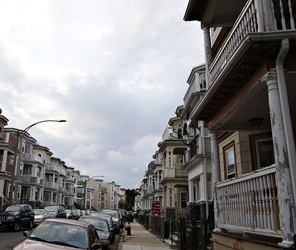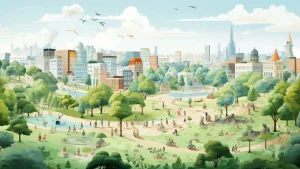Why smart cities need an urgent reality check

Responsive urban technology sounds enticing but citizens must not be disconnected from plans drawn up on their behalf, argues Gary Graham in The Guardian.
“It’s not clear at the moment whether future cities are strategic experiments for [large companies such as IBM, Samsung, Cisco and Intel], or if they are genuinely catalysing the regeneration of inner cities. To investigate some of these visions, I went to MIT in Boston for three months last year. The aim was to find out how people would get their goods and services in the city of the future, and how we we get everyone to engage with city plans.
We decided to test out some ideas with the inner-city communities of Boston in a series of workshops. We essentially combined science fact and science fiction by presenting them with a Boston set in 2037, based on current technological trends projected forward through several imagined scenarios.
We combined the traditional science fiction ideas of utopia and dystopia with realistic technological trends such as artificial intelligence, 3D printing and big data and asked Bostonians to come up with fictional stories about their life in these environments.”
And the answers were quite to the point:
“Workshop participants felt smart cities were rather utopian concepts growing from a vision put forward by one group of businesses. There was general agreement that there were often many visions for the city, but “at the moment it’s the rich and powerful who determine that future vision.”
Many were troubled by the notion that people would live in a city purely because of its technology capabilities and thought there were lots of other important social and cultural reasons influencing people’s decisions to live or work somewhere. Just because these urban centres could offer us new ways of living in the future does not negate the importance of the natural environment, history and legacy.”



